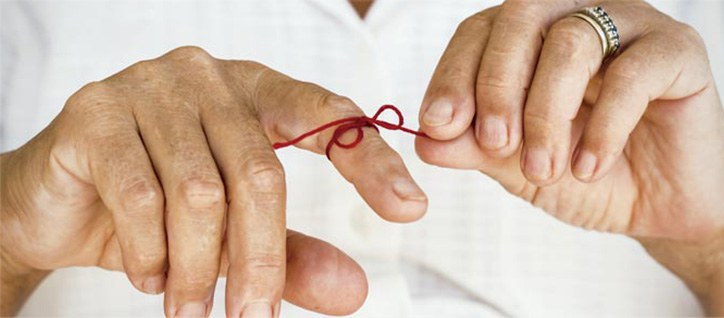Unlocking our memory’s secrets
Mariko OSAKA, Professor, Graduate School of Human Sciences
More focus on task preparation could help the elderly improve their short-term memory

Credit:simarik/iStock/Thinkstock
Caption:A strong working memory can prevent the elderly people from becoming socially isolated and improve their overall happiness.
Unlocking our memory’s secrets
More focus on task preparation could help the elderly improve their short-term memory
A collaboration between Osaka University researcher Mariko Osaka and colleagues in Japan and the US has outlined how various brain networks function when working memory is activated.
Working memory is essential for briefly retaining the information needed to complete a task or activity, such as remembering what groceries we planned to buy. Osaka, an expert in working memory from the Graduate School of Human Sciences, describes its function as the “brain’s scratch pad”.
Specifically, Osaka’s team has shown that while certain regions of the brain, known as the default mode network, play a key role when preparing to perform tasks, these preparatory regions switch off as the task is executed1.
The team’s finding could have implications for improving the attention control of elderly people and strengthening their working memory capacity. “Without an effective working memory, elderly people can easily forget appointments and become isolated from their friends, which leads to depression,” says Osaka. “In a rapidly aging society, it is important for the elderly to maintain a healthy mind and to be happy.”
To study the brain regions involved in working memory, the researchers scanned the brains of study participants as they completed a series of dual tasks that required them to recall words while also doing simple addition problems. To understand the differences in brain function between preparation and execution of the tasks, participants were given time to prepare for the tasks.
The researchers found both the default mode network and the brain regions involved with directing working memory, known as the executive working memory network, were activated during task preparation. But as the task was being executed, activity of the working memory network increased while the default mode network turned off.
The results suggest that the default mode network deactivates to direct resources to task-relevant regions such as the working memory network. However, activation of both networks during task preparation also highlights the importance of this stage in successfully completing a task, Osaka says.
The preparation stage might involve strategic planning, including retaining information to recall at a later time by using prospective memory, and retrieving episodic memory of previously performed tasks.
The team also examined the relationship between brain activity and working memory capacity (measured by a memory span test involving recalling words in sentences).
They found some indication that greater working-memory span was associated with a higher level of activation in the medial prefrontal cortex region of the default mode network during task preparation.
Osaka says the results indicate people with a higher working-memory span might have more processing capacity. This opens up a possible field of endeavour for her research.
Longer preparation times may help regulate attention control, inhibition and monitoring of task performance, she says.
“I will take this work into my research around strengthening working memory capacity and better attention control in the elderly,” she says. “It will help elderly people maintain a healthy mind and a happy life.”
Related link

Professor Mariko Osaka
Graduate School of Human Sciences
Osaka University
mosaka@hus.osaka-u.ac.jp
Reference:
1. Koshino, H., Minamoto, T., Yaoi, K., Osaka, M. & Osaka, N. Coactivation of the Default Mode Network regions and Working Memory, Scientific Reports 4, 5954 (2014).
Interview held in March 2016
